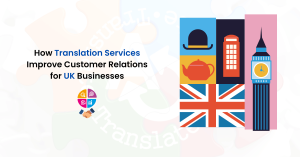Everybody has had a dream job. It’s the job which you talked about when as a child people kept asking you “What do you want to be when you grow up?”, the career in which you think you would break through once that all your desires have been accomplished. We all knew some children who wanted to be astronauts, others doctors or actors; but I wanted to be a translator. Since I was little, the idea of talking in a language that was different from mine just fascinated me: I kept on translating the songs I liked the most or tried watching my favourite movies in the original version, imagining how lucky I would be to do this as a job.
But dreams are called dreams because they are different from reality, and when one eventually starts working as a translator, they have to face the reality of the job. There may not be interesting novels to be translated, nor beautiful places to travel to thanks to an interpreting job. Most of the work consists in sitting in front of a computer, translating birth certificates or medical prescriptions. No matter how fluent you are in another language, you have to get familiar with very specific lexis that you probably wouldn’t even use in your mother tongue. So, how is it exactly to be a translator? And is speaking in a different language really enough to do that as a job? In this article I will try to show you the main constraints that I came across and made me aware of the differences between being a translator and being just a speaker.
You’re not just a speaker: you’re an expert
A translation should look as it was originally written in the target language; which is impossible to achieve without knowing the different local expressions and nuances of your mother tongue, without having a deep knowledge of the grammar and being able to master a wide lexicon. Your writing skills should be excellent, and this ability is not owned by all native speakers. The best translators often are writers as well; TS Eliot, Baudelaire, Eugenio Montale were astonishing authors and superb translators.
You will hardly deal with plain language
I know, you can perfectly get the point of an economic article in a newspaper or understand a political TV debate in another language. But even if your knowledge is extensive enough to do that, a translator doesn’t just have to know how to handle a conversation on complex topics; when I client hires a technical translator, it is mostly because he needs to be sure that the text that will be furnished will be totally understood by the target audience, which may be a foreign authority. Easy to guess that the subjects which you will have to deal with will be more than specific; how to translate a power of attorney if you have never dealt with legal texts? And what if a customer provides you with a patent but most of the technological words you have translated didn’t go further than switch a computer on and off? Many translators decide to specialise in a particular language field not by chance.
Software is vital
Sometimes, a client may provide you with all the necessary formatting for the translation. Generally, you are supposed to know how to deal not only with the text and the translation in itself, but also with the post-translation process; this means that the words PowerPoint, CAD, DTP programs shouldn’t sound obscure to you, but should become a daily part of your working life.
Deadlines are not a joke
Not respecting the due date of your work will weaken your professional credibility (and may make you lose a client forever). Punctuality is not just a good quality that would be appreciated as in every other profession, but an essential characteristic of your job. It is not hard to imagine the consequences that finishing a legal translation one day late would have on your reputation as a translator if your client has already arranged an appointment with his notary public for the same day. It’s your duty to be on time, but also to be conscious of the amount of time that you will need to complete your job. A good translator will find a compromise that suits both parts in case the schedule expected by the customer can’t be respected by the translator.
Being a translator gives you lot of opportunities that are hard to find in other jobs; you will constantly deal with languages different from yours and you will feel intimate with another way of expressing yourself, but also with another culture without even travelling. It will enrich a lot your cognisance of both source and target languages, but also your self-knowledge in general. At the same time, however, translating is a challenging job that will require study, self-control and many other skills in addition to the few listed above that go further than “just” having a good level in a foreign language. But if you still feel that, despite these obstacles, this is your way … Walk this path and enjoy it!
By Alessandra Carnevale








